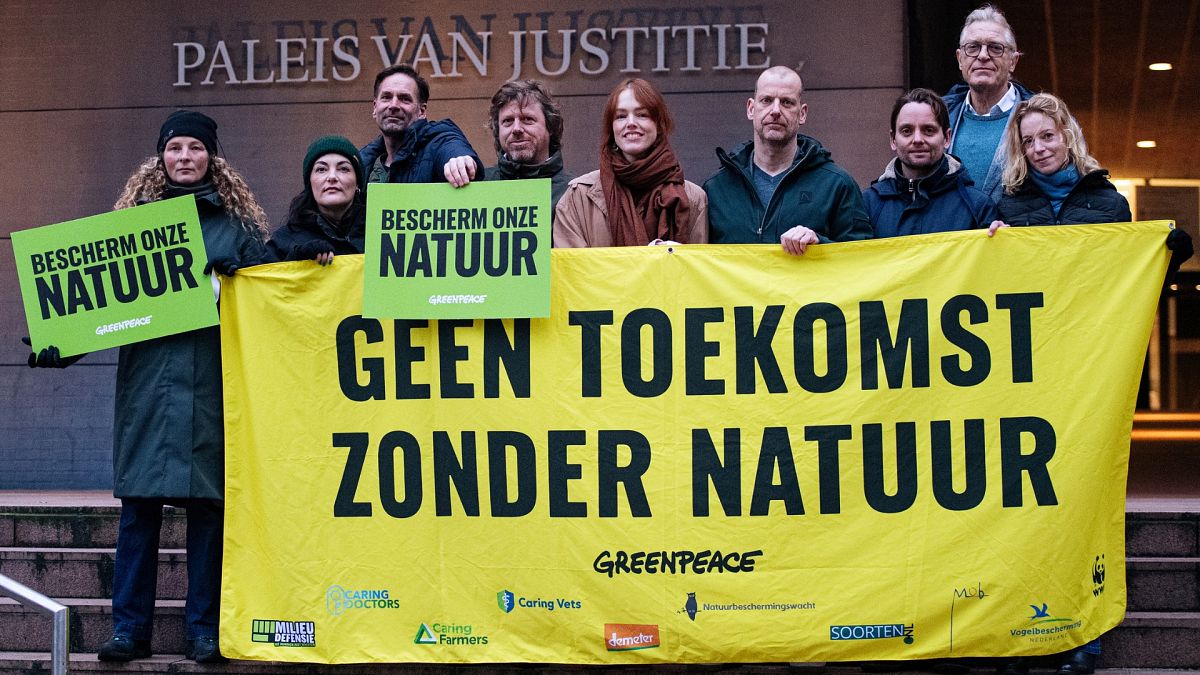The ruling follows earlier verdicts that have highlighted the ineffectiveness of the government’s nitrogen-cutting policies.
A Dutch court has ordered the government to cut nitrogen pollution in protected nature areas after a case brought by Greenpeace Netherlands
Greenpeace brought the case to the courts as it argued the government was failing to address critically high levels of nitrogen oxide pollution, mostly from farming and transport.
The organisation called it the “last chance to save the most vulnerable habitats because if nitrogen emissions don’t go down, we risk losing unique plants and animals,” at a hearing last November.
Nitrogen pollution can degrade soils and inadvertently fertilise trees, grasslands and tolerant species. These then outcompete more sensitive plants and fungi leading to a loss of biodiversity. If it makes its way into the ocean, it can cause ‘dead zones’ and toxic algal blooms.
Nitrogen pollution is the third most influential driver of human-caused biodiversity loss after habitat destruction and the emission of greenhouse gases.
The ruling means the Schoof administration now has to ensure that nitrogen levels fall below harmful thresholds in at least half of the country’s most vulnerable habitats by 2030 or they will have to pay a €10 million penalty.
What happens now?
It isn’t a particularly large charge for the Dutch government but it adds pressure for them to tackle an ongoing problem in the Netherlands. It also represents a win for Greenpeace and could mean more NGOs taking governments to court.
The ruling follows earlier verdicts that have highlighted the ineffectiveness of the government’s nitrogen-cutting policies. Since 2019, a series of rulings has seen a freeze on permits for construction, tighter rules on animal feed and more.
The court said that without tangible regulatory and financial measures, targeted at agriculture, transport and industry, the government risks not complying with EU law and further damaging nature.
Greenpeace asked the court to check government action against the European bird and habitat directives. These key EU nature protection policies are what led to the creation of a pan-European network of protected areas – the Natura 2000 network. The Netherlands has around 160 areas that fall under this network.
‘A celebration without cake’
Greenpeace celebrated the win but emphasised the need for urgent action from the government.
“This ruling is a celebration for nature and finally there is clarity. The State has been postponing measures and leaving society as a whole, but also farmers and companies, in uncertainty,” says Andy Palmen, director of Greenpeace Netherlands.
“It has been so long that the judge has now intervened. It is a celebration without cake, because it should not be necessary for the judge to intervene again.”
Palmen adds that systemically ignoring the nitrogen problem has caused nature to deteriorate further in recent years.
“By not making choices, urgent measures must now be taken. We expect the government to finally take responsibility in the action plan and ensure that all relevant sectors, including agriculture, traffic, aviation and industry, make a fair contribution.”

